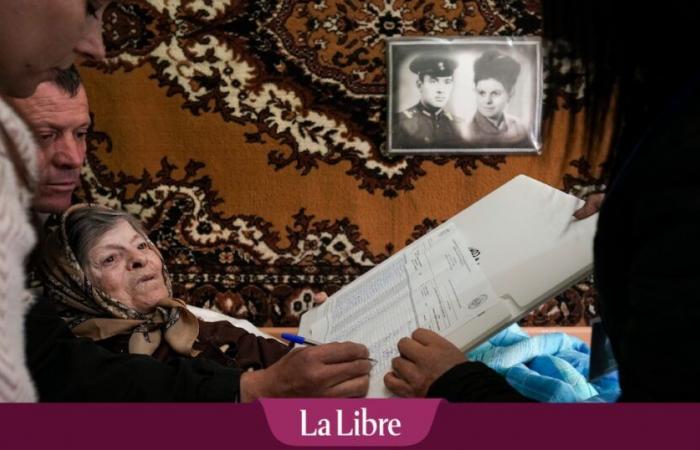
The second round, which will pit Ms. Sandu against the pro-Russian candidate Alexandru Stoianoglo (26% in the first round) this Sunday, therefore has little chance of escaping attempts at manipulation. A look back at the scale of the phenomenon with Andrei Curararu, founder of the Moldovan organization WatchDog, created in 2016 to fight against interventionism and disinformation in the country.
The European Union cautiously welcomes the results of the votes in Moldova
According to you, Russia spent more than a hundred million dollars to influence the first round of the presidential election. Where does this figure come from?
We have pooled three types of information, all public: the amounts revealed by the police after searches carried out in offices and organizations suspected of collaborating with Moscow, the pay slips of certain corrupt officials which leaked on the internet, and finally, technological investments intended to support the pro-Kremlin candidate or boost disinformation, on Google and Facebook in particular. For these alone, Moscow spent more than 300,000 euros in a few months. When you add it all up, you get to over $100 million. And that only takes into account what has been made public, so the real amount is undoubtedly much higher. Moldovan justice estimates that in total, almost 330,000 people are likely to have been bought at all levels of society.
Moldova: Commission denounces “unprecedented interference” from Russia
How entrenched and diverse is this interventionism?
Let me cite as an example the NGO Evrazia of the Moldovan oligarch Ilan Shor, which is now under European and American sanctions. The organization has infiltrated so many levels of Moldovan society that it has become a state problem. Evrazia began by targeting young people and sending groups of minors to summer camps in Russia from which they returned full of pro-Russian narratives. They were retaught history, they learned that the Moldovan economy is exclusively linked to the Russian market, etc… In total, more than 300,000 young people were sent to Moscow or Crimea in a few years, and around a hundred among them even agreed to go to camps in Serbia where they were trained in the use of weapons and explosives by members of the Wagner group (former paramilitary militia of the late Evgueni Prigojine, Editor’s note) with the possibility of joining them on the battlefield. Evrazia then became interested in teachers, using the same methods. And when it worked here too, they moved on to priests. Data leaks have identified at least two hundred Moldovan Orthodox priests who went to Moscow and received bonuses of 1,000 euros per month since their return to introduce anti-European elements without their sermons.
Which segments of the population tend to be more favorable to Moscow?
Minorities, like the Ukrainian minority for example, are essentially Russian speakers and are afraid of no longer being able to practice their language. Besides that, you have the intellectuals nostalgic for the USSR, the diaspora returning from Russia to settle in Moldova, and of course all the opportunists who follow Moscow for the money.
How is the Russian invasion of Ukraine perceived today?
At first everyone was afraid, it was taboo to support Russia. But after two and a half years of propaganda, we see more and more voices being raised to call on Ukraine to lay down its arms and give up part of its territory. Many of our politicians are linked to oligarchs and categorically refuse to call Russia an invader.
In Moldova, “political considerations are very distant. The vote is a café debate”
What to expect from Russia for the second round of the presidential election this Sunday?
We feel real frustration in the pro-Russian camp at not having been able to get a “no” vote in the referendum on EU membership two weeks ago. They spent a lot of money to buy the result and didn’t get what they wanted. All that remains is to try to influence the second round of the presidential election. Everything now depends on the ability of the police and the judiciary to extract corrupt people from the system. If things repeat themselves, the propaganda will be much more important than in the first round. Traditionally, the second round of the presidential election is preceded by an explosion of fake news. In 2016, Maia Sandu was a candidate, and fake news that she was planning to let 30,000 Syrian refugees return spread everywhere. Another lent her a lover in the United States. If more than 300,000 people have indeed been bought in one way or another, no poll can predict what will happen on Sunday. Our only hope is that the mixed result of the referendum has also caused a shock among the pro-Europeans, and that they go massively to the polls to vote for Sandu.





